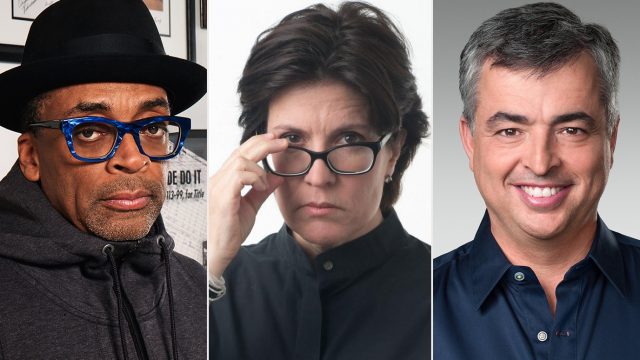Influencer Brand Partnerships + The Law
Whether you’re endorsing a product as part of a new partnership with your favorite brand, or whether you’ve been using that brand for years and just now pushing the product, the FTC wants you to be using #ad or #sponsorship to make it abundantly clear, this is a paid endorsement.


Consumers may have a better understanding of why their favorite Instagram stars are using specific products, but not everyone is satisfied in the matter.
Fashion influencer and co-founder of the Trove app, Mary Orton is one of those influencers who feels her hands are tied by blatantly stating her work is boiled down to #ad “my hope is that the FTC’s lexicon evolves. If their goal is to inform the consumer and make sure that there is that transparency to the consumer using words like ‘ad’ and ‘sponsored’…i don’t think that paints a clear picture to the consumers” says Orton.


With over 129,000 followers, and working with
big name brands like Macy’s and Polo Ralph Lauren, Orton feels it’s not the most helpful way to promote her brand as well, especially since she’s been using these products for years. Combined with the fact that it’s a different medium entirely vs what you see on TV, digital partnerships shouldn’t be held to the same standard.
“I think that likening what I do on my blog and social channels to what the general populous of what an ad is…is not an accurate depiction of how I work with brands at all,” says Mary. She goes on to explain that her followers have known her voice and posts so well, they understand she loves the products she endorses more than the traditional way “real people, not actors” depict products on TV.
Not So Black & White
An attorney at Nixon Peabody, Ellie Altshuler, has tried explaining the changes that seem unnecessary, especially when this particular area isn’t black and white. “We know that the influencer has a relationship with the brand,” says Altshuler, “whether they’ve been paid or received a gift or they’re an employee…there has to be a disclosure that it’s paid ”.
How far does the FTC take product endorsement by influencers?
Altshuler warns that soon, content creators may have to not just allow the consumer to know it’s a paid ad, but that the brand language will have to be part of the post. “There will likely be a shift very soon when even the freebies that you’re getting from the brand will also need to have disclosures next to them.”
While the FTC hasn’t flat out said that, they are hinting that it will proceed in that direction.


“Product placements are such a traditional thing on its own,” Altshuler explains. The difference between stars on the big screen vs. the little ones we carry in our pockets? The number of followers. Most people already have the understanding that when they see famous people endorsing everyday products, they’re clearly getting paid for it.
However, with reality stars, Youtubers, Instagrammers and others like them, they’re only viewed by their followers, making the lines of hashtag usage being necessary to disclose.
With Facebook and Instagram adding features for influencers and content creators to show they’re just that, this also opens the door for the FTC to change the rules, even per platform. “It’s great that Facebook is following but just because they have created these tools does not mean they’re necessarily being compliant,” notes the Nixon Peabody lawyer, Ellie Altshuler.
With some of the rules living not just online but in the great area, Altshuler seems to think that the current way we take in advertising on these platforms isn’t going anywhere, “I think it’s going to continue to be the Wild, Wild West.”



